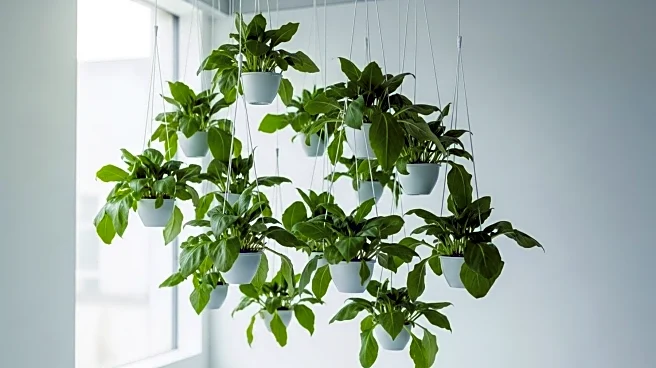What's Happening?
The global aeroponics farming market is experiencing rapid growth as sustainable agricultural practices gain traction. Aeroponics, a soil-less cultivation method, uses a nutrient-rich mist environment to grow plants, offering higher yields and faster growth cycles. This method reduces water consumption by up to 90% and eliminates the need for pesticides, making it ideal for urban and vertical farming. The market is driven by increasing food demand, urbanization, and government support for sustainable farming.
Why It's Important?
Aeroponics farming presents a sustainable solution to the challenges of food security and climate change. By significantly reducing water usage and eliminating harmful chemicals, aeroponics supports environmental conservation and resource efficiency. The method's suitability for urban farming also addresses the need for local food production in densely populated areas. As the global population continues to grow, aeroponics offers a viable alternative to traditional agriculture, contributing to long-term food security.
What's Next?
The aeroponics market is expected to see further advancements in technology, such as AI integration and smart sensors, enhancing productivity and reducing operational costs. As awareness of sustainable farming practices increases, more regions are likely to adopt aeroponics, supported by government policies and subsidies. The market's growth will also be driven by ongoing research and development efforts to make aeroponics more accessible and cost-effective.









